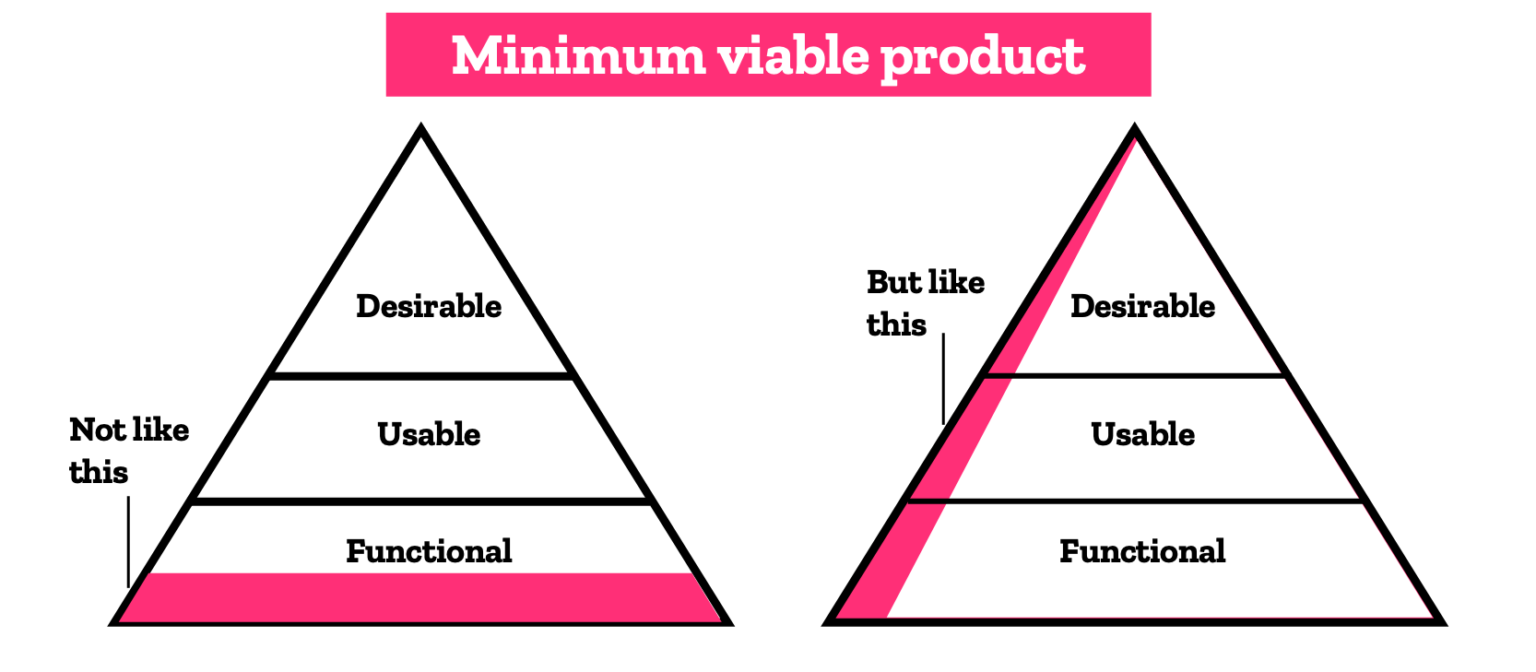Mobile applications are now essential for businesses to communicate with their consumers, streamline processes, and spur development in the current digital world. However, the path to success in the competitive mobile app market can be challenging and uncertain. That’s where a well-executed Minimum Viable Product (MVP) strategy comes into play.
Minimum Viable Product
By leveraging the expertise of a reliable mobile app development service, businesses can unlock many benefits and maximize their app’s potential. This article will explore the seven key advantages of creating an MVP and how it can pave the way for a successful app launch and long-term success. So, let’s delve into the world of mobile app development and discover how an MVP can be a game-changer for your business.
What is an MVP?
An MVP, or Minimum Viable Product, is a development strategy that focuses on creating a basic version of a product or service with the minimum necessary features to satisfy early adopters and gather valuable user feedback. In the context of mobile app development, an MVP serves as a preliminary app version that showcases its core functionality and key features while omitting non-essential elements.
The primary goal of an MVP is to test the market, validate the app’s concept, and gather insights from real users before investing significant resources into a fully-fledged product. By adopting an MVP approach, businesses can minimize risks, save time and money, and make informed decisions about future development iterations based on user feedback and market demand.
Why Build An MVP When Building an App?
Creating a successful mobile app can be a daunting task, especially with so many apps already on the market. That’s why many businesses turn to the MVP approach. An MVP is a bare-bones version of your app that includes only the essential features needed to solve a specific problem for your target audience. Building an MVP has several benefits that can help businesses maximize their app’s potential and increase their chances of success.
Firstly, an MVP allows you to test your idea in the real world. By launching an MVP, you can gather feedback from your early adopters and make necessary improvements before investing in a full-fledged app. This approach saves businesses time, money, and resources in the long run.
Firstly, an MVP allows you to test your idea in the real world. By launching an MVP, you can gather feedback from your early adopters and make necessary improvements before investing in a full-fledged app. This approach saves businesses time, money, and resources in the long run.
Mobile Apps:
Building an MVP can be an effective strategy for businesses looking to create successful mobile apps. By testing your idea in the real world, prioritizing features that matter most to your users, validating your business model, building a loyal user base, and staying focused on your core goals, you can maximize your app’s potential and increase your chances of success.
Benefits of Creating an MVP for Maximizing Your App’s Potential
Reduced Development Costs:
Developing a full-fledged mobile app can be expensive, especially if you invest heavily upfront without knowing if your app will resonate with users. By creating an MVP, you can significantly reduce development costs by focusing only on the essential features and functionalities required to test your app’s viability in the market. This approach allows you to allocate your resources efficiently and minimize financial risks.
Faster Time to Market:
In the fast-paced world of mobile app development, time is of the essence. Creating an MVP allows you to get your app to market quickly and gather valuable user feedback. By focusing on the core features, you can expedite the development process and launch your app in a shorter time frame. This agility gives you a competitive edge, enabling you to seize market opportunities and stay ahead.
User-Centric Approach:
Building an MVP encourages a user-centric mindset. Launching an early version of your app and gathering user feedback gives you valuable insights into your target audience’s preferences, pain points, and expectations. This feedback-driven approach lets you make data-informed decisions and iterate on your app, ensuring that the final product aligns with user needs and expectations. By putting the user at the center of your development process, you increase the chances of creating an app that resonates with your target market.
Minimized Risk and Validation:
Developing a full-scale app without testing its viability can be a risky proposition. By creating an MVP, you can validate your app concept, market fit, and value proposition before investing significant resources in development. The early user feedback and data gathered from the MVP help you assess demand, identify potential hurdles, and make informed decisions about the app’s future direction. This risk mitigation approach significantly increases the chances of building a successful and profitable mobile app.
Continuous Improvement:
An MVP serves as a foundation for continuous improvement and iterative development. Launching an initial version of your app allows you to collect valuable feedback, identify areas for improvement, and prioritize future features based on user demand. This iterative approach ensures your app evolves and remains relevant in a rapidly changing market. By consistently enhancing the user experience and addressing user feedback, you can build a loyal user base and achieve long-term success.
Cost-Effective Market Testing:
Launching an MVP allows you to test your app’s market potential without incurring significant costs. By gathering user feedback, analyzing user behavior, and monitoring key metrics, you can assess the market demand and make data-driven decisions about the app’s future. This cost-effective market testing approach helps you refine your app’s value proposition, target the right audience, and optimize your marketing strategies for maximum impact.
Competitive Advantage:
In a crowded app market, standing out from the competition is crucial. An MVP lets you enter the market early, gather user feedback, and make iterative improvements based on market insights. This proactive approach gives you a competitive advantage by allowing you to address user needs and preferences swiftly. By delivering a compelling user experience and staying ahead of the curve, you can differentiate your app from competitors and establish a strong market presence.
Conclusion:
Leveraging the benefits of creating an MVP through a trusted mobile app development service can be a game-changer for your app’s success. By partnering with one of the top IT companies in the USA, you can tap into their expertise, technical prowess, and industry knowledge to maximize your app’s potential. These leading IT companies have a proven track record of delivering innovative and high-quality mobile app solutions that cater to diverse business needs.

